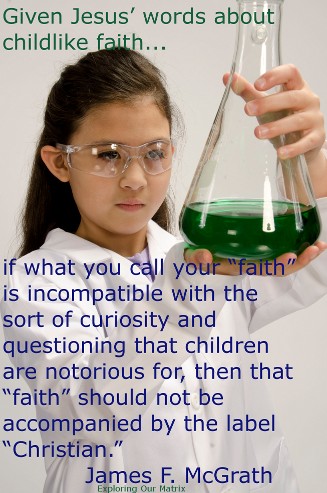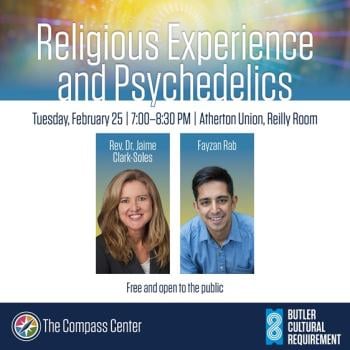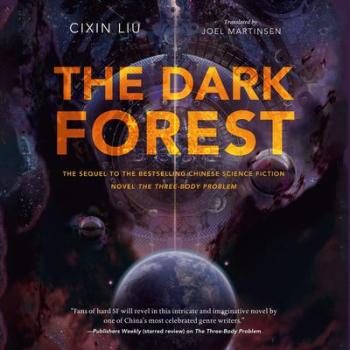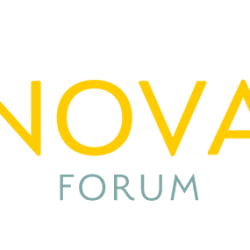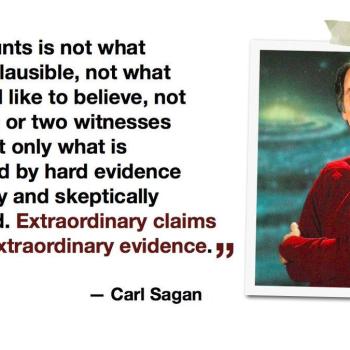The New Republic featured an article by theoretical physicist Carlo Rivelli, about science and its relationship to certainty. This is the best part, in my opinion:
What, then, are the aspects of doing science that I think are undervalued and should come up front? First, science is about constructing visions of the world, about rearranging our conceptual structure, about creating new concepts which were not there before, and even more, about changing, challenging, the a priori that we have. It has nothing to do with the assembling of data and the ways of organizing the assembly of data. It has everything to do with the way we think, and with our mental vision of the world. Science is a process in which we keep exploring ways of thinking and keep changing our image of the world, our vision of the world, to find new visions that work a little bit better.
In doing that, what we’ve learned in the past is our main ingredient—especially the negative things we’ve learned. If we’ve learned that the Earth is not flat, there will be no theory in the future in which the Earth is flat. If we have learned that the Earth is not at the center of the universe, that’s forever. We’re not going to go back on this. If you’ve learned that simultaneity is relative, with Einstein, we’re not going back to absolute simultaneity, like many people think. Thus when an experiment measures neutrinos going faster than light, we should be suspicious and, of course, check to see whether there’s something very deep that’s happening. But it’s absurd when everybody jumps and says, “OK, Einstein was wrong,” just because a little anomaly indicates this. It never works like that in science.
The past knowledge is always with us, and it’s our main ingredient for understanding. The theoretical ideas that are based on “Let’s imagine that this may happen, because why not?” are not taking us anywhere.
I seem to be saying two things that contradict each other. On the one hand, we trust our past knowledge, and on the other hand, we are always ready to modify, in depth, part of our conceptual structure of the world. There’s no contradiction between the two; the idea of the contradiction comes from what I see as the deepest misunderstanding about science, which is the idea that science is about certainty.
Science is not about certainty. Science is about finding the most reliable way of thinking at the present level of knowledge. Science is extremely reliable; it’s not certain. In fact, not only is it not certain, but it’s the lack of certainty that grounds it. Scientific ideas are credible not because they are sure but because they’re the ones that have survived all the possible past critiques, and they’re the most credible because they were put on the table for everybody’s criticism.
Click through to read the rest of the article. HT Matt Young
